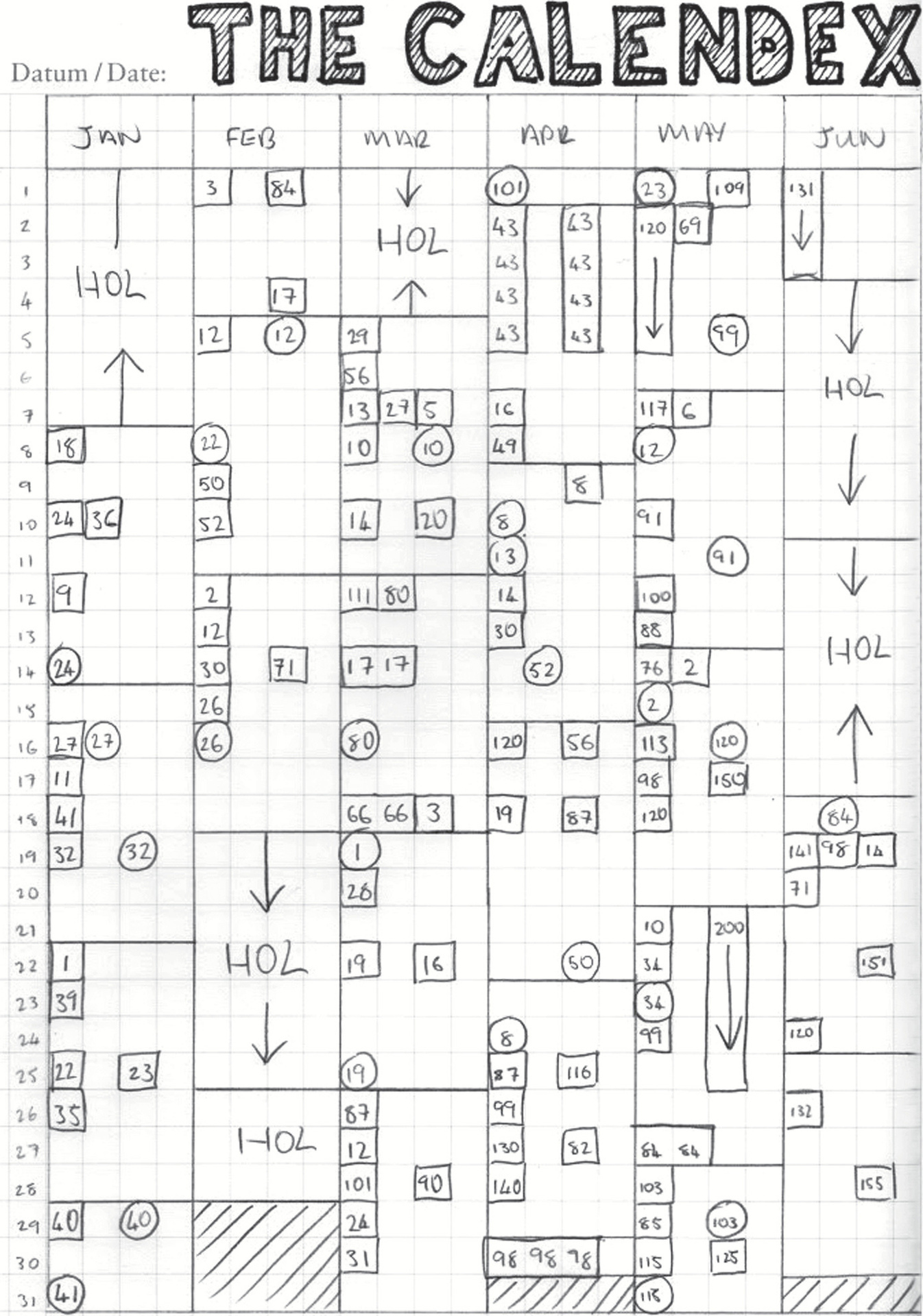Class 12: Project Management
Methodology of Scientific Research
Andrés Aravena, PhD
May 12, 2022
Managing time is managing yourself
One day you may be the head of a lab (or department, or company, or organization)
You will need to decide
- What to do
- How to do it
- When to do it
But if you are not the boss, you still need to make the same decisions
Why is good to organize your time
- More free time
- Better free time
- Better mood
- Better health
- Better self-esteem
- Professional success
Good practices
This class is based on several books


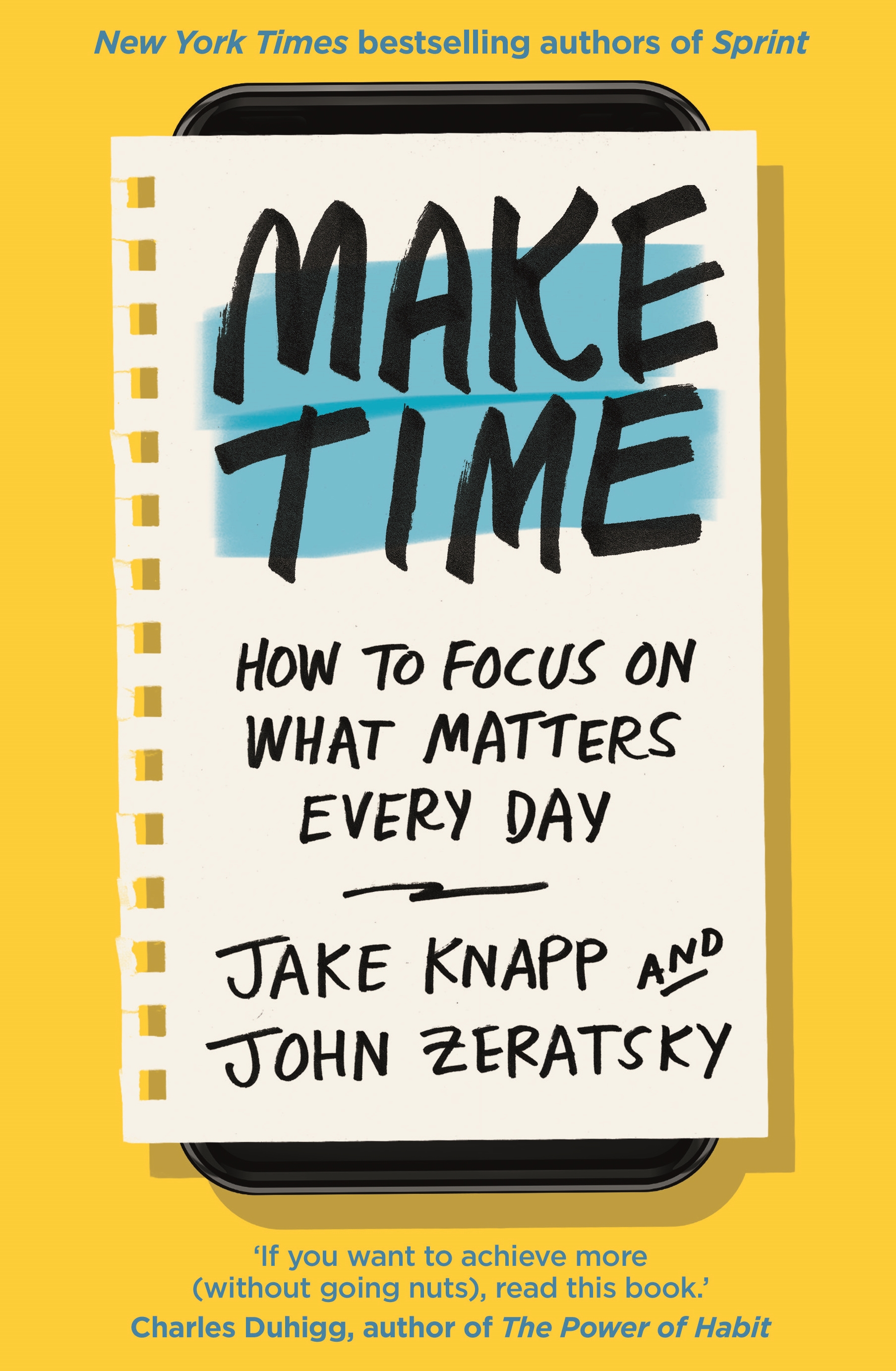
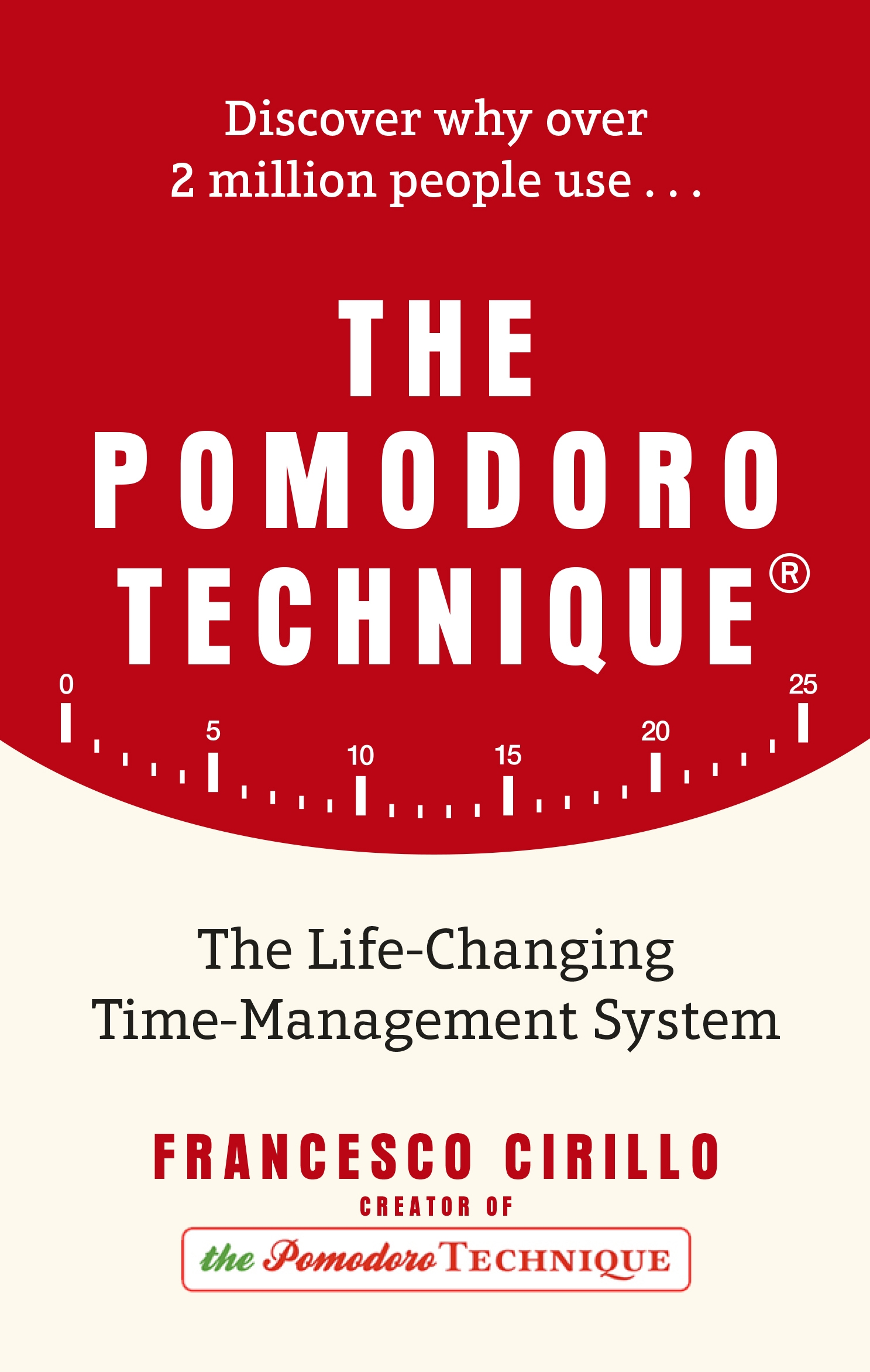

We can only show the main ideas of each one
Getting Things Done
This is the essential book

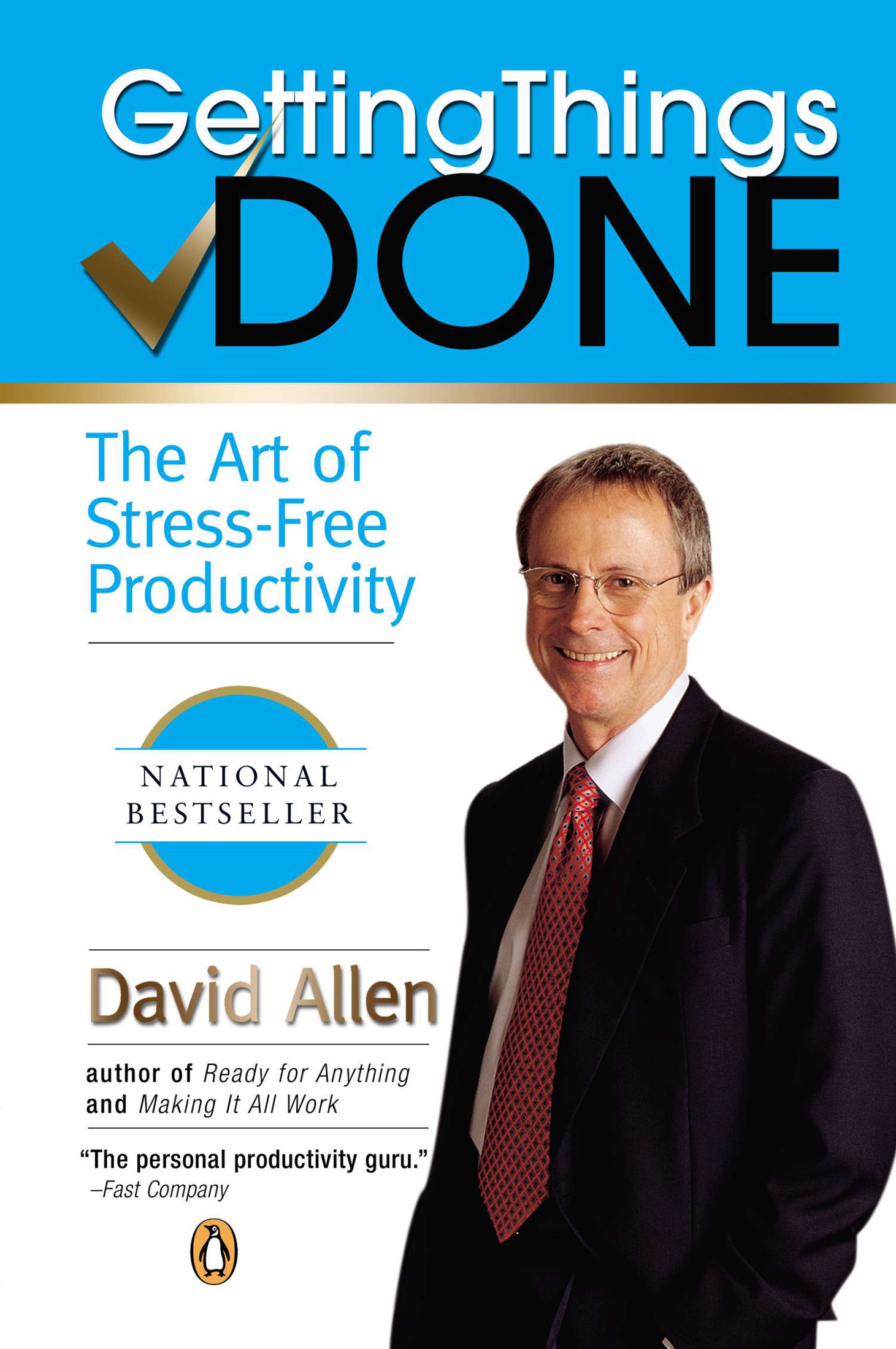
All the other books make reference to this one
First published in 2001, updated in 2015
Biased to business, but useful in other contexts
Core process
- We capture what has our attention
- We clarify what each item means and what to do about it
- We organize the results,
- We reflect on the options, and choose what to do
- We engage on doing
The trick is in the details
“Mind is for having ideas, not storing ideas”
Anything that is pending or incomplete can be a source of stress
The recommendation is to put everything out, in a system that you can trust
The Inbox
We should put everything that calls our attention in one place
(or very few places)
- A physical “In Box” in the desk
- The email inbox
- WhatsApp/Messenger/Messages/Signal/Hangouts/LinkedIn/Facebook/Instagram
- Other channels that are forced on you (AKSIS)
Many inboxes leads to many ways to miss something important
Step 1: Capture
GTD recommends starting by putting everything in a physical inbox
Even printing the emails you have in your email
I prefer to keep separate digital and physical inboxes
Collecting everything is hard the first time, but later becomes a habit
Step 2: Empty the Inbox
In other words
- We clarify what each item means and what to do about it
- We organize the results,
- We reflect on the options, and choose what to do
Pipeline

Actionable?
2 minutes rule
Finally

Archive
Projects
Calendar
Practice
Using Google Tools
We need good practices, because
our mind fools us
We think we will never forget, but we do
“I remember it now, therefore I will remember it forever”
When we see something or learn something, this fact is present in our short-term memory and we feel like we will always remember it
Solution: Use a journal (or lab notebook, or blog)
We think our memories correspond to facts, but often they do not
“Things were exactly as I remember”
Research shows that our memory is not at all a “recorder”
We misremember a lot
Solution: Use a journal
We are bad at estimating projects’ complexity
We think that we can finish a project in less time that it will really take
Solution: Write in your journal how much time you
worked every day.
Reflect on how did you use your time
We think that everybody knows what we know, so they do not need explanations
“I understand it, so everybody understands it”
This is the curse of knowledge
It is the main reason why our text is hard to read
Solution: still trying to figure out. Practice.
We think that everything we do is easy
“I’m not really that good, and one day they will realize I don’t know anything”
We learn a little every day, so it never feels hard
But we accumulated learning in a large period,
and it is hard to see how much we have learned
This leads to Impostor Syndrome
Solution: Look at your journal and reflect on how much have you learned in the last year
We don’t know that we don’t know
“Incompetent, and unaware of it”
This is the Dunning-Kruger effect
It is hard to improve if we don’t know we are bad
Be open to criticism of your work
You are not your work
Bullet Journal
For the things that do not work in the computer

Published initially on YouTube, the book came later
Most YouTubers do it wrong: they focus on decoration
The important thing is to use it.
Live Intentionally

Necessary tools
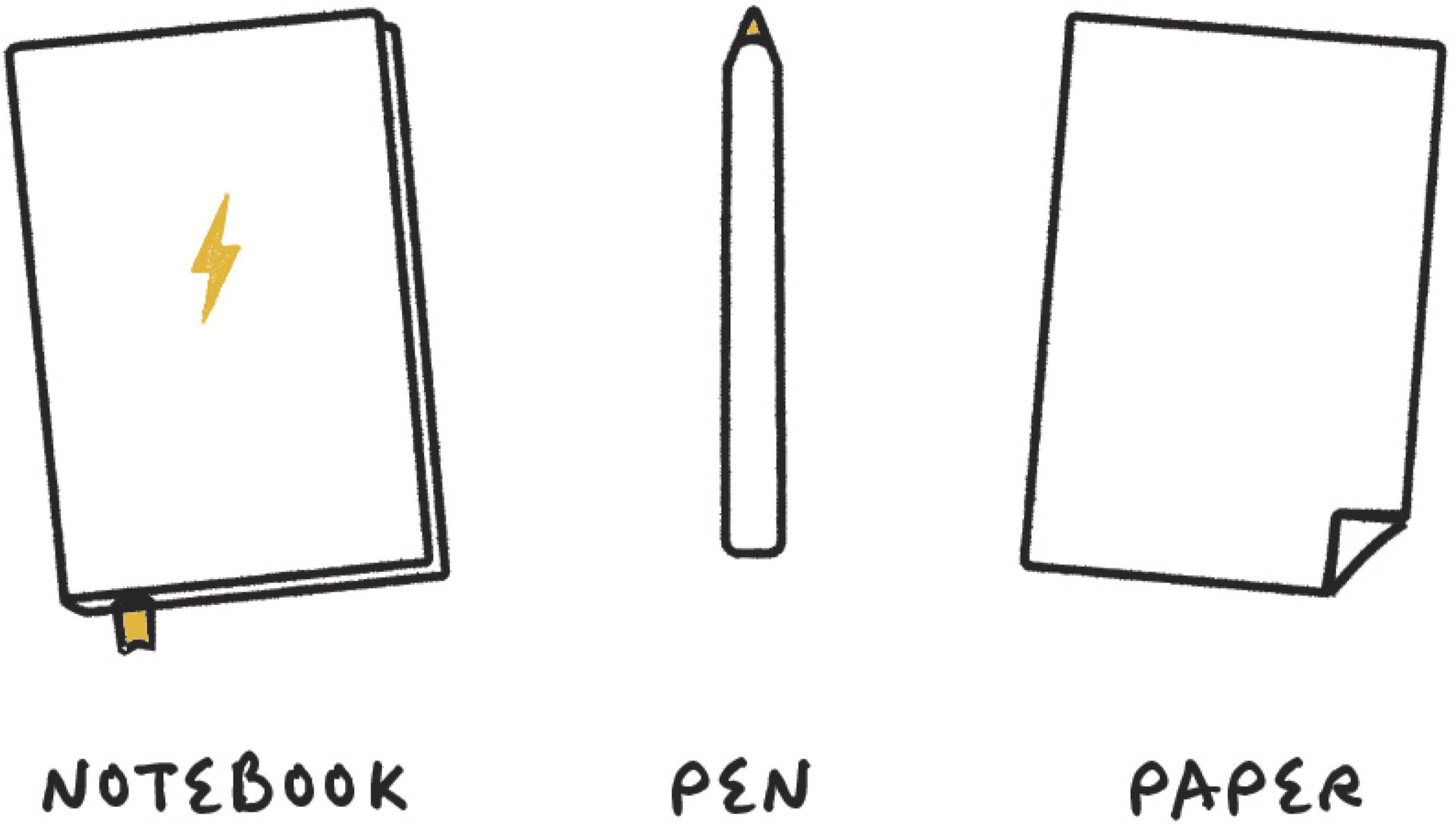
Parts of the Journal
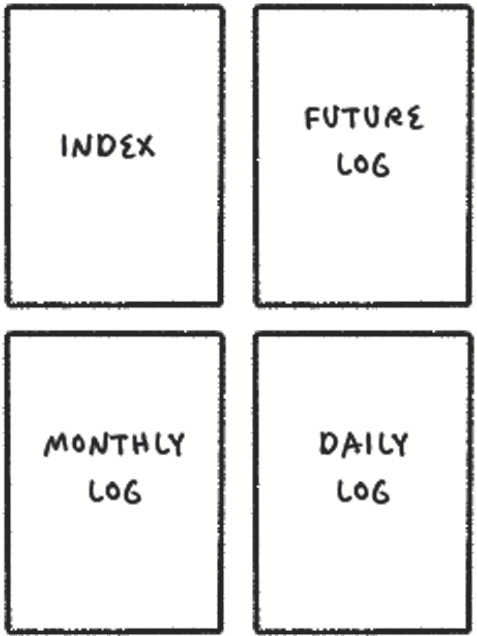
- Index
- Future Log
- Monthly Logs
- Daily Log
- Collections
Daily Log
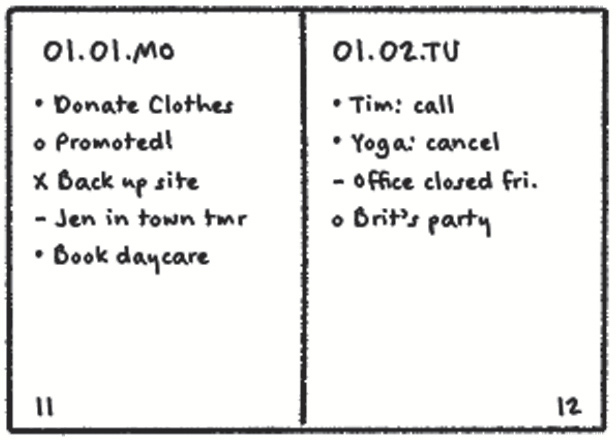
These are the bullets
- Tasks
- Events
- Notes
This is an Inbox
Write it through the day
Key idea: Migration
As in GTD, there is a time for reflection
Early or late every day we:
- Write or underline the important events of the day
- Close all completed bullets
- Migrate pending tasks
- Next daily log
- Monthly log
- Future log
Monthly migration
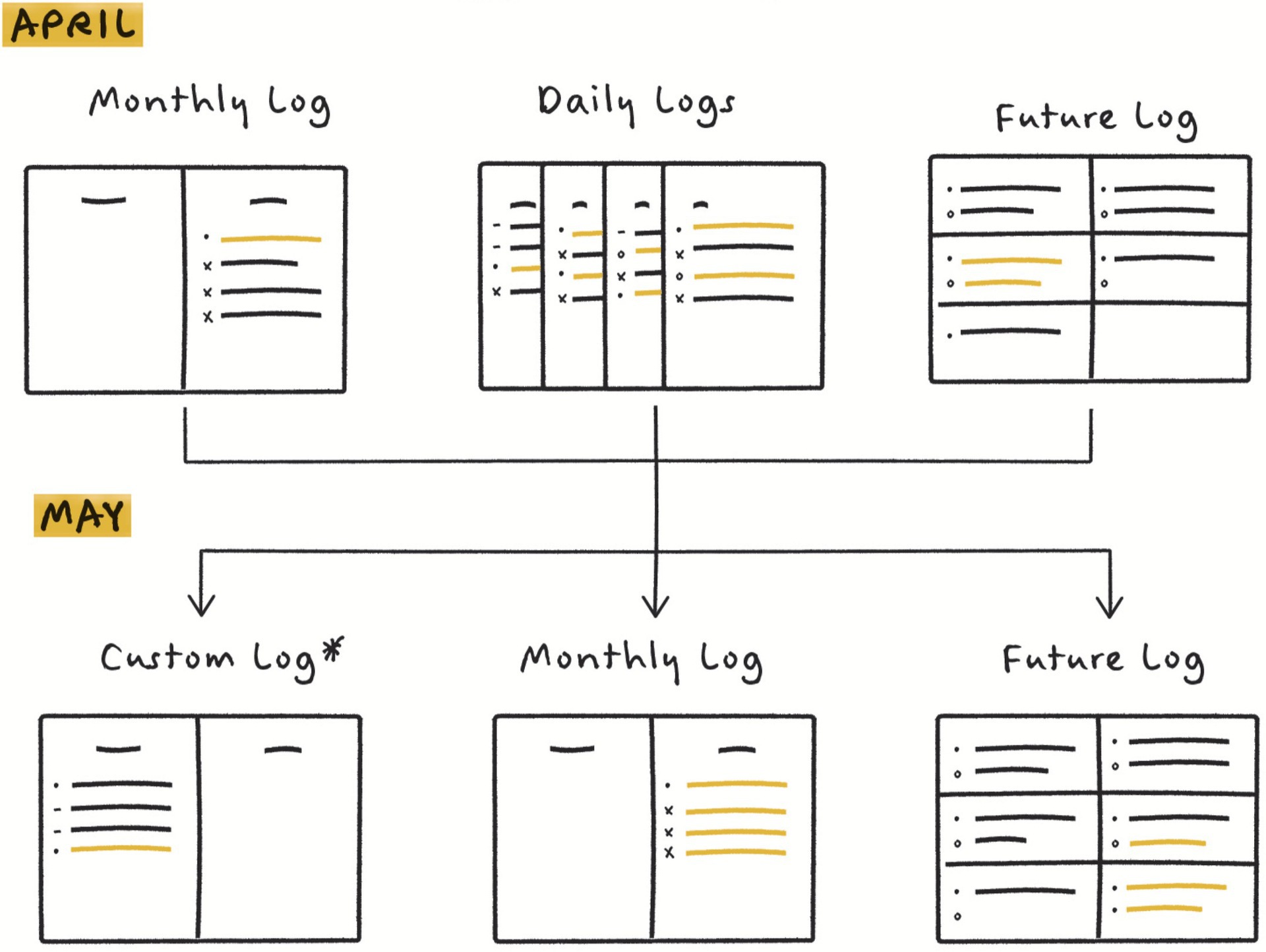
Future log
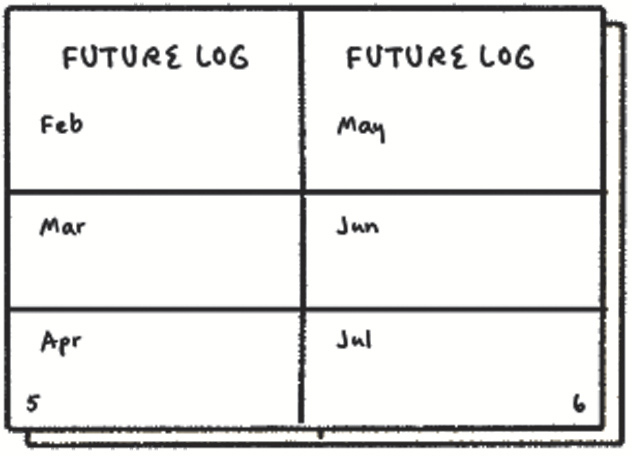
Alternative Future log
